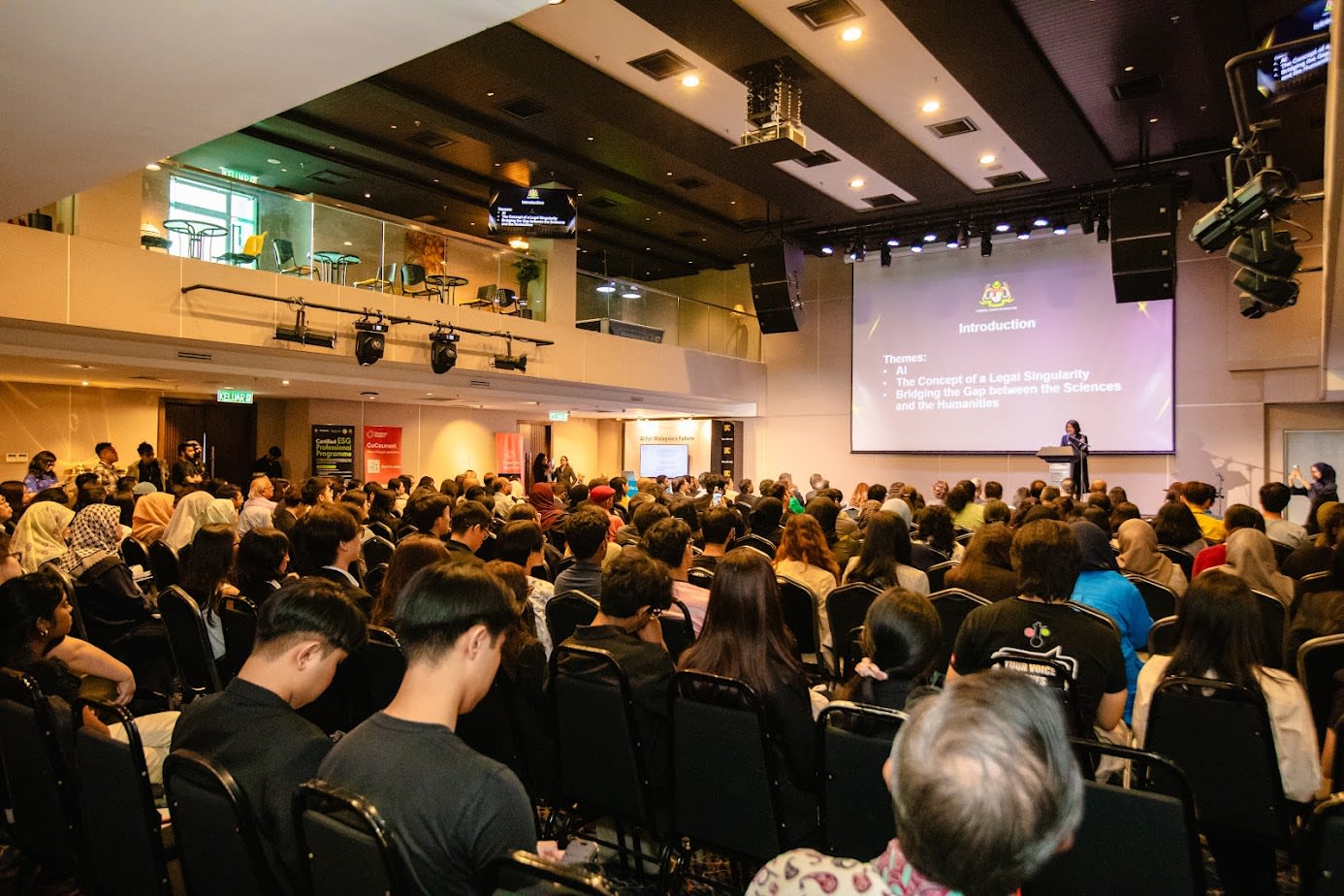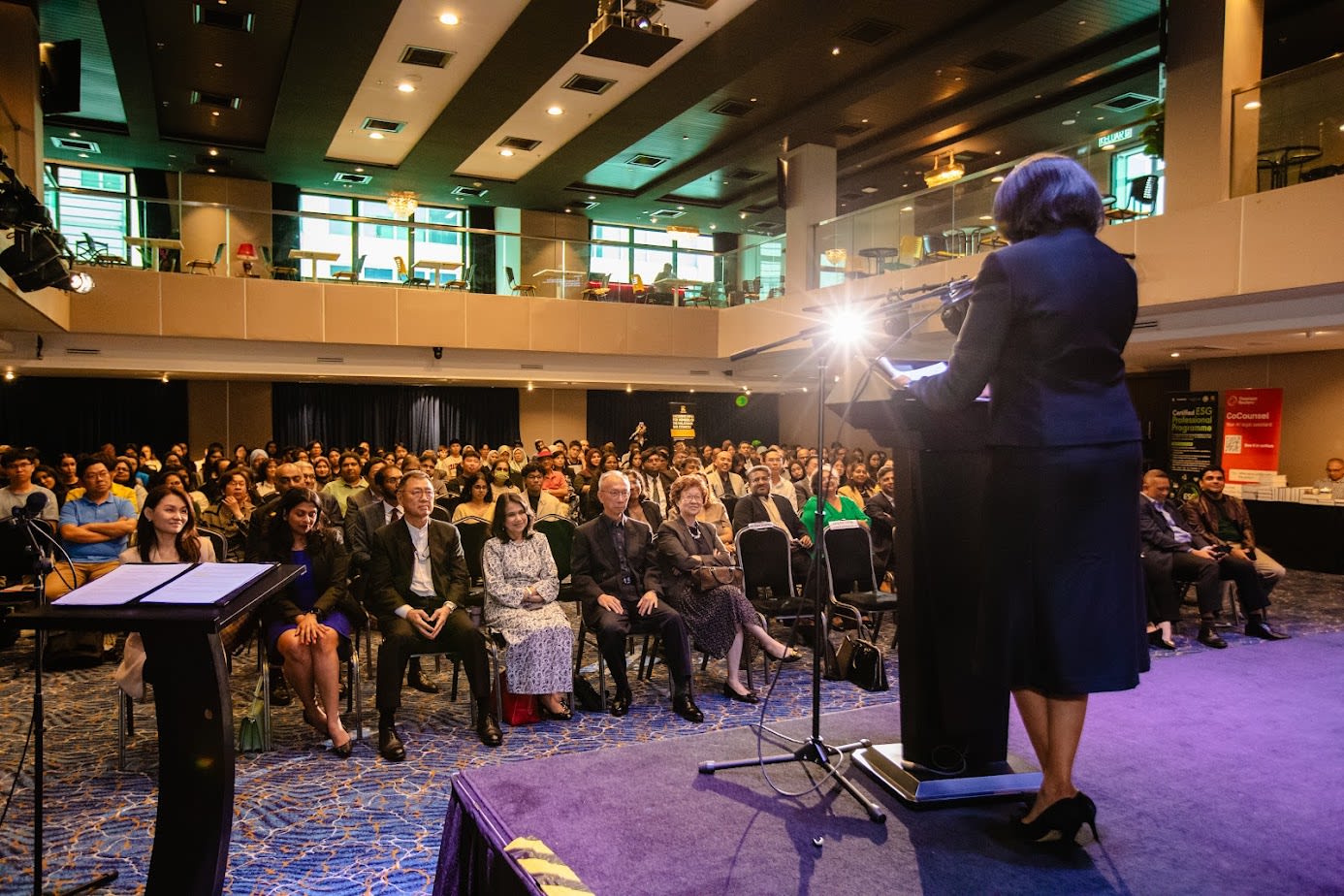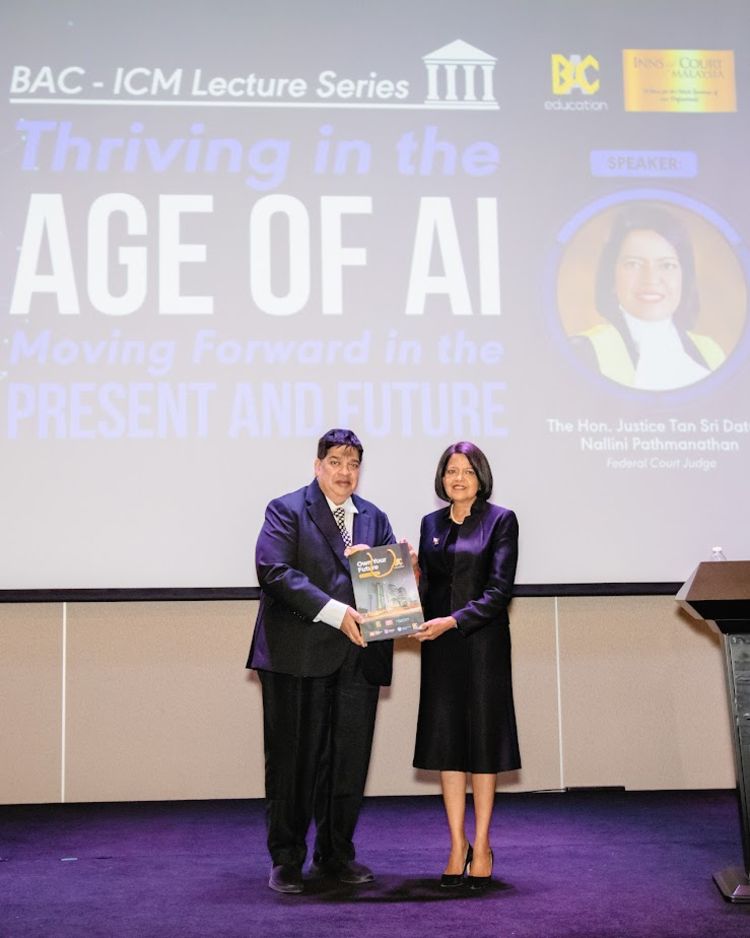BAC-ICM Lecture Series: Thriving in the Age of AI and Moving Forward in the Present and Future
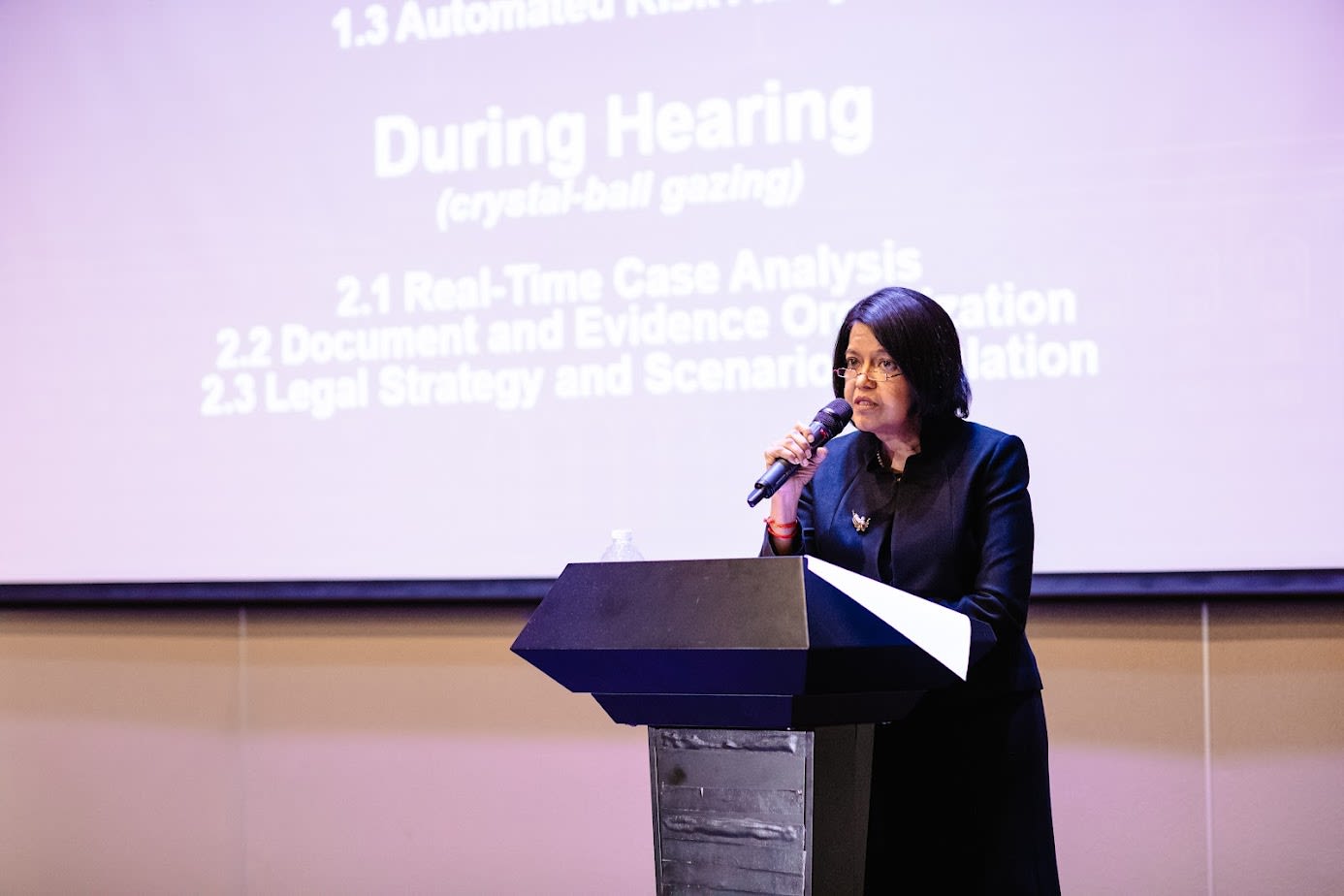
On April 23rd, 2025, Brickfields Asia College (BAC), in collaboration with the Inns of Court Malaysia (ICM), hosted another exciting edition of the BAC-ICM Lecture Series, themed “Thriving in the Age of AI and Moving Forward in the Present and Future.” Held as part of an ongoing conversation on legal evolution and innovation, this session has once again brought together the minds of legal experts and students to explore the exciting combination of law and artificial intelligence.
Opening Insights from Mr. Raja Singham
The event began with welcome some very warm words by BAC’s Chief Future Officer and Co-Founder, Mr. Raja Singham, who provided a grounded but also forward-thinking perspective of how AI is already reshaping the legal industry and its professionals.
In his address, Mr. Raja Singham highlighted that while AI might raise concerns about job displacement, it is more accurate for those in the field to view it as a tool that will enhance the legal profession to its highest potential yet - not eliminate it. In fact, he stressed that the legal industry is set to witness a greater demand for lawyers, especially those who are trained to work alongside AI systems. Tasks that were once time-consuming, like document review, legal research, and even early case assessments, are now being streamlined by technology. Yet, as Mr. Raja Singham explained, “AI will never replace the human judgment, empathy, or ethical reasoning required to practise law responsibly.”
Keynote Address by Justice Tan Sri Datuk Nallini Pathmanathan
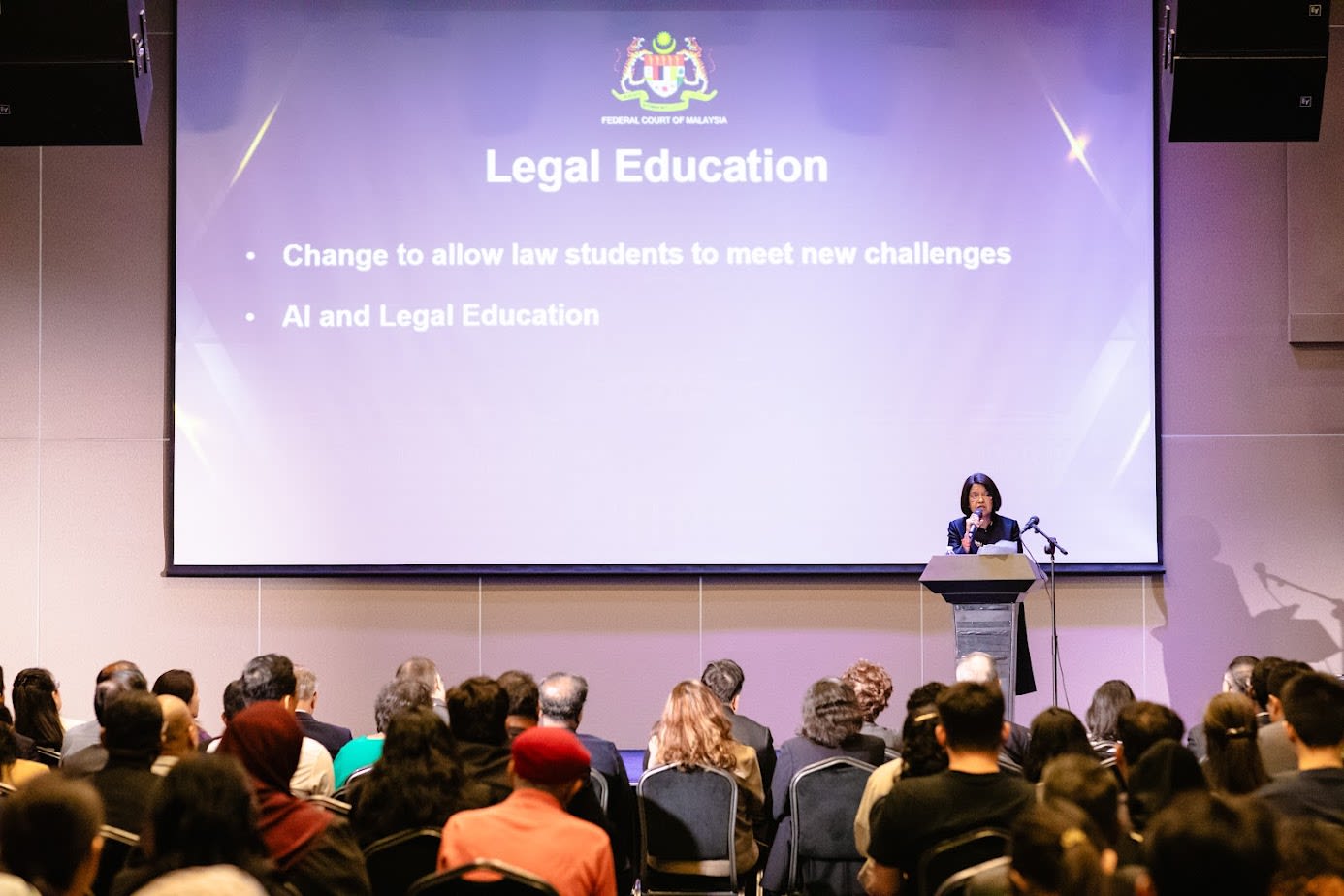
The heart of the event was the keynote speech by no stranger to BAC's halls, The Honourable Justice Tan Sri Datuk Nallini Pathmanathan, a respected judge of the Federal Court of Malaysia. Her talk has once again captivated and enthralled attendees with an exciting exploration of AI’s growing relevance to our current legal systems.
Justice Nallini began by delving into the concept of the “legal singularity” - a hypothetical point where AI might be capable of rendering highly accurate legal outcomes, potentially redefining the role of legal professionals. She discussed the urgent need to bridge the gap between the sciences and the humanities, emphasising that as legal frameworks increasingly intersect with technology, lawyers must not shy away from engaging with the technical knowledge behind it.
A particularly compelling, and one many have been curious to hear, area of her speech addressed the common fears associated with AI - from job loss to the ethical dilemmas. Rather than dismissing these fears, Justice Nallini acknowledged their legitimacy while offering a more optimistic and constructive outlook to show that all is certainly not lost and there's more to gain.
She argued that lawyers of the future must be fluent in both legal reasoning and digital literacy, and that the profession is evolving, not shrinking. From the multiple new career opportunities opening up and how even companies like Microsoft are expanding our field with AI systems like Microsoft Copilot.
Concluding her address, Justice Nallini offered a crisp yet accessible explanation of Artificial Neural Networks (ANNs)—the backbone of modern AI. She described how ANNs mimic human cognition, and how their potential influence on legal analysis, prediction, and even judgment formation cannot be ignored.
"These are exciting times to be a lawyer" she said, and with a plethora of experience and knowledge to back it up, it is doubtful that anyone left without some excitement for the future of this industry.
The Road Ahead
This session of the BAC-ICM Lecture Series has once again come as a reminder that the legal field is not immune to disruption—but it is ready for transformation. From courtroom technology to legal research automation, AI is crafting a new kind of legal professional: one who is adaptable, informed, tech-savvy, and unafraid to step into the future
As the conversation between tradition and innovation continues, events like this only aim students, academics, and professionals alike to engage with AI critically but also creatively. The message was clear:
The future of law is not about resisting change but embracing it with integrity and intellectual curiosity.

